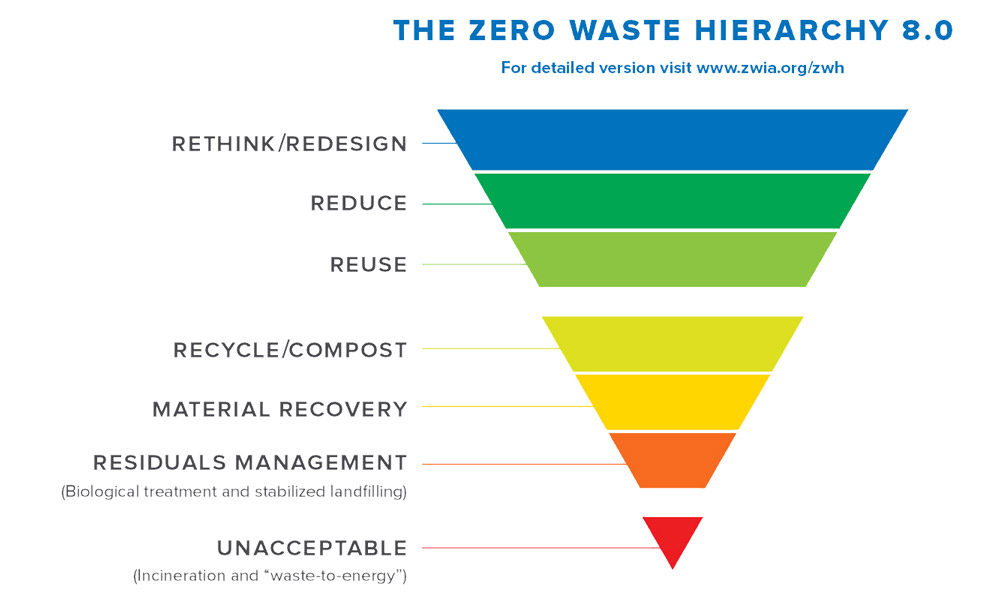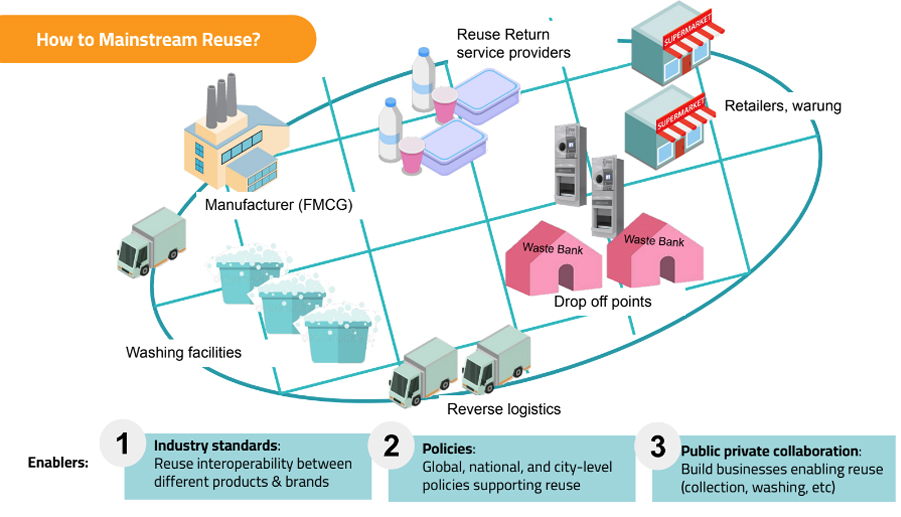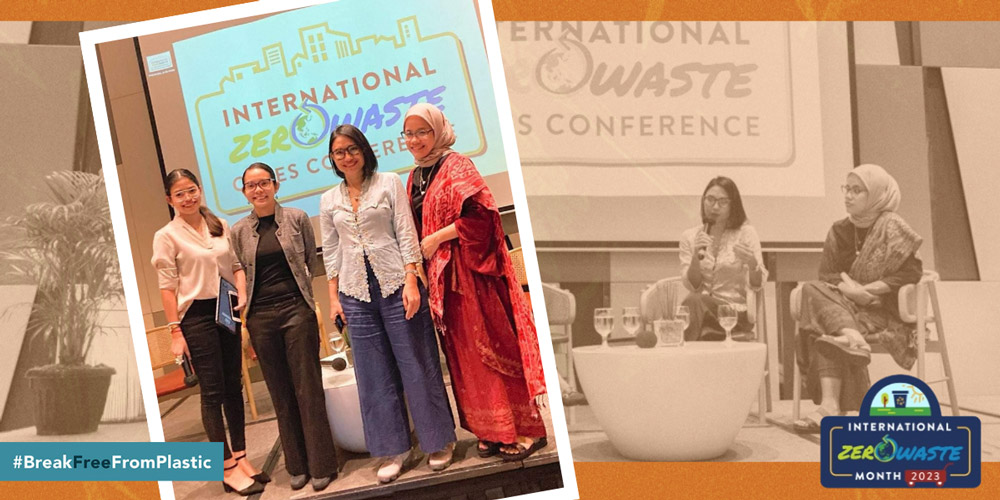What is going to replace single-use plastics?
This is a question that Tiza Mafira, Executive Director of Gerakan Indonesia Diet Kantong Plastik (Indonesia Plastic Bag Diet Movement) posed during a panel discussion at the International Zero Waste Cities Conference in Manila, Philippines in the last week of January 2023.
Talking about overcoming barriers to mainstream reuse as a norm, Mafira emphasized the importance of showing that reuse is an already existing solution to plastic pollution and the emissions that exacerbate the climate crisis.
“If our vision is for reuse to become mainstream, we need to visualize reuse as an entire infrastructure whereby it's a circular infrastructure and the existing infrastructure is entirely used and modified and adjusted to accommodate for a reuse system," said Mafira.
Amid conversations on curbing the climate crisis and commitments on capping carbon emissions, industries have also been presenting various schemes and technologies which they claim as “solutions” to the continuous plastic pollution. Waste-to-energy technologies, waste burning, chemical recycling, and other false solutions do not address the root of the problem: unnecessary production of plastics. Simply replacing single-use plastics with other single-use materials such as paper or other bioplastics will not address the problem at source and will only perpetuate ‘throwaway culture’ thus contributing to waste pollution.
Reuse as a solution to plastic pollution
Reuse is not only about reusable cups and canvas bags, but entire systems that require standards, infrastructure, political will, financing, and promoting behavioral change.
Reuse systems address single-use plastics pollution by reducing the demand for single-use plastics (SUPs) and in the longer term, reducing the production of SUPs. This removes some of the responsibility from end-of-pipe waste management, to reduction of upstream use of raw materials.
If we are to conserve materials and make better use of our natural resources without wasting and causing damage to the environment, redesigning product delivery and reuse should be of high priority before resorting to recycling and waste remediation.

Source: Zero Waste International Alliance
"Reuse generates less emissions— less material extraction from the beginning and less emissions and pollution at the disposal end,” said Mafira.
Creating an enabling environment for Reuse Revolution
Reuse is a system and it is not a new one.
One of the common means to reuse is the refill system where consumers bring their own containers to the store then purchase products using their own reusable containers or packaging like glass bottles, jars, and reusable bags among others. Another system is returning containers to the producer through which the producer will reuse the containers to package their products.

Source: Tiza Mafira, GIDKP Presentation, January 2023
In the Philippines, Greenpeace Southeast Asia started a project “Kuha sa Tingi'' (roughly translated: taken at retail) which created a reuse and refill system in a community, bringing it closer and accessible to consumers. The project was created in partnership with the local government of San Juan city, a private company specializing in business models and scaling, a product supplier, and ten sari-sari stores (small mom-and-pop variety stores). Product dispensers are placed in the stores and consumers bring their own containers to refill. The supplier then collects the dispensers, sanitizes them, and refills them for the stores. This makes refilling accessible to the community at price points that are more affordable than other brands sold in plastic packaging.
"Reuse and refill will apply in different contexts but what we found is that in order to scale, we need investments and that should come from the corporations that are producing these wastes and causing plastic pollution,” said Marian Ledesma, Zero Waste Campaigner at Greenpeace Southeast Asia - Philippines. “At the same time, governments have to enable them, compel these polluters to invest and shift to refill and reuse."
In Indonesia, Enviu’s Zero Waste Living Lab partners with restaurants and provides them with returnable food and beverage packaging through Allas, a returnable packaging service. Customers can get their meals in returnable packaging and these containers are collected from the customer, sanitized, and reused. Meanwhile, Koinpack partners with fast moving consumer goods companies to provide consumers with the products in returnable packaging. Consumers enjoy a cash back incentive each time they return a Koinpack packaging. These ventures keep the packaging in the loop through reuse and refill systems.
"The demand of the customers is there and consumers are receiving and accepting the system when it is accessible,” said Darina Maulana, Program Lead at Enviu. “Behavior change is [affected] in two ways—in the operation's feasibility and also the market. The operation needs to be available for the market to use and also convenient and contextual [for the market] to use.”
Reuse is already part of the culture in zero waste cities and communities. We are seeing that incentives can shift behaviors towards reuse. However, industry regulations, enabling policies, and public-private partnerships must work together to truly enable a reuse revolution to happen. Collaboration among the government, private sector, and communities can provide models for solutions and scale the existing samples of reuse systems which further demonstrate that Asia is a home of solutions.
How reuse systems would look like may not be the same everywhere in the world but the result of reuse systems will be felt through a significant reduction in single use plastics production and waste.
The "Reuse Revolution: Breaking Down Barriers in Southeast Asia" panel discussion is part of the International Zero Waste Cities Conference 2023 organized by the Global Alliance for Incinerator Alternatives Asia Pacific on 26-27 January, 2023 in Quezon City, Philippines. The conference gathered Zero Waste experts, practitioners, government officials, and community leaders to share expertise and experiences for impactful solutions to plastic pollution and the climate crisis.




